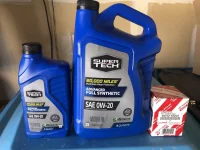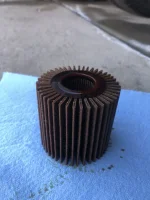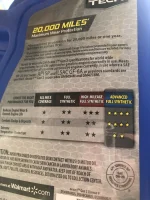Hey all,
This is the first oil report I've done and it's on my 2017 Highlander XLE 3.5L V6 that has just over 70,000 miles. I used SuperTech Advanced Full Synthetic 0W-20 for 10,368 miles which was in use for 9 months. The ST bottle claims 20,000 mile protection, but I've no interest in going over Toyota's recommendation of 10,000 miles or 12 months. This is our daily driver/kid hauler and sees approximately 70% city driving, some mountains/hills, and a wide range of ambient temps. The engine oil filter I use is the Toyota 04152-YZZA1 and the engine air filter is Toyota 17801-YZZ11. I was particularly interested to see how this report would come out since this is the 2GR-FKS engine that has the ever-so-annoying start/stop technology. I've always been concerned it adds unnecessary wear & tear. Everything looked good to me on the report and I see no reason to change anything. What do you folks think?

This is the first oil report I've done and it's on my 2017 Highlander XLE 3.5L V6 that has just over 70,000 miles. I used SuperTech Advanced Full Synthetic 0W-20 for 10,368 miles which was in use for 9 months. The ST bottle claims 20,000 mile protection, but I've no interest in going over Toyota's recommendation of 10,000 miles or 12 months. This is our daily driver/kid hauler and sees approximately 70% city driving, some mountains/hills, and a wide range of ambient temps. The engine oil filter I use is the Toyota 04152-YZZA1 and the engine air filter is Toyota 17801-YZZ11. I was particularly interested to see how this report would come out since this is the 2GR-FKS engine that has the ever-so-annoying start/stop technology. I've always been concerned it adds unnecessary wear & tear. Everything looked good to me on the report and I see no reason to change anything. What do you folks think?




